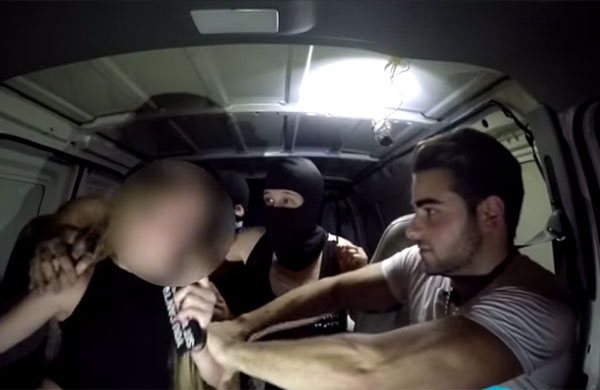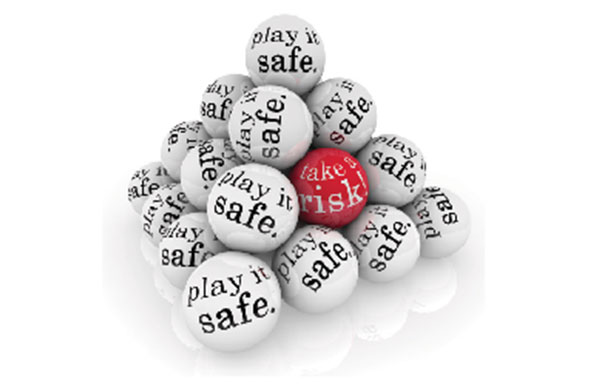 Parents and children of America have a grievance. Government compels us to pay into the public educational system, but will not allow us to choose the schools that best meet the needs of our children. This choice is left to government educrats who decide which schools our children attend and what they will be taught, including indoctrination conforming to their political and religious outlook. Parents who opt out of this system are penalized with the loss of educational funding. Clearly, this violates the First Amendment: “Congress shall make no law respecting an establishment of religion, or prohibiting the free exercise thereof….”
Parents and children of America have a grievance. Government compels us to pay into the public educational system, but will not allow us to choose the schools that best meet the needs of our children. This choice is left to government educrats who decide which schools our children attend and what they will be taught, including indoctrination conforming to their political and religious outlook. Parents who opt out of this system are penalized with the loss of educational funding. Clearly, this violates the First Amendment: “Congress shall make no law respecting an establishment of religion, or prohibiting the free exercise thereof….”
What greater violation can there be than daily, automatic, financial penalties for sending your child to an alternative school?
If this were not enough, we have the Fourteenth Amendment: “No state shall make or enforce any law which shall abridge the privileges or immunities of citizens of the United States; nor shall any state deprive any person of life, liberty, or property, without due process of law….” Yet, those who choose alternative education are denied funding to which they have contributed.
If this too were not enough, we also have the Civil Rights Act of 1964: “An act…to provide injunctive relief against discrimination in public accommodations…to protect constitutional rights in public facilities and public education.”
Although “public accommodations” include privately owned restaurants, theaters and shops, “public education” is taken to mean only those schools run by the educational establishment. Parents who choose private or religious school for their children are compelled to suffer the financial consequences. No greater government-sanctioned abuse of civil rights exists in today’s America! And the results are devastating.
Families are society’s first line of defense in raising law abiding citizens who form the foundation of any civilized society. By compelling parents to pay for government-run schools and denying them funding for alternative education, government has usurped the rights of parents to raise their own children. By pushing parents aside and assuming the responsibility for raising our youth, government has intervened in the very foundation of our societal structure, in a task for which it is not suited. Government functions far better conducting its constitutionally mandated responsibilities, such as national defense. Just as families are not fit to fight wars, so are governments unfit to raise families. Many of the ills we suffer today can be directly traced to the weakening of the family. This is where we need to focus our attention if we are to find our way back to America’s true potential as envisioned by the founders.
The matter of education reform and school choice relates to the very core of the Culture War now raging in America. Those who educate the children, determine the nation’s culture. Therefore, the central question we need to address is whether the education of the child is an individual parental right or the right of the state. If we are to take the position that the education of children is a state right, and the right of parents to choose the education that best fits the needs of the individual child is to be usurped by the state, then the system we have today is the right one. The results are also quite predictable. Just as central governmental control in enterprise is doomed to failure, so too with education.
A Nation at Risk
As far back as 1981, Secretary of Education T. H. Bell created the National Commission on Excellence in Education to examine the quality of education in the United States, explaining that this was needed because of “the widespread public perception that something is seriously remiss in our educational system.” The title of their report, after an 18-month study, says it all: “A Nation At Risk – April 1983.”
Since then costs have skyrocketed, and education has gone from bad to worse. The late economist Milton Friedman reported in the Hoover Digest of 2001, in an article entitled How Can We Fix Our Public Schools? By Making Them Private:
“The quality of schooling is far worse today than it was in 1955. There is no respect in which inhabitants of a low-income neighborhood are so disadvantaged as in the kind of schooling they can get for their children. The reason is partly the deterioration of our central cities, partly the increased centralization of public schools—as evidenced by the decline in the number of school districts from 55,000 in 1955 to fewer than 15,000 in 1998. Along with centralization has come—as both cause and effect—the growing strength of teachers’ unions. Whatever the reason, the deterioration of elementary and secondary schools is not disputable.”
He compared our system of public education to the Soviet’s economic system, which was run from the top down—by government fiat—and led to its failure. In sharp contrast, America’s economy is based on free enterprise, where people choose the products they buy, compelling producers to sell better products at lower prices. He postulates that the only way to bring down the cost of education and improve its efficiency and quality is to make it consistent with our free enterprise system. Friedman calls this bottom up, and says that parental choice will vastly improve our inadequate educational system. This leads us to the obvious solution: the passage of legislation requiring equitable funding for all children, regardless of whether they attend public, private or religious schools, much like the Civil Rights Act of 1964.
Some people claim that the Tenth Amendment precludes the federal government from passing legislation concerning education, a matter left to the states. “The powers not delegated to the United States by the Constitution, nor prohibited by it to the states, are reserved to the states respectively, or to the people.”
Most significantly, the Tenth Amendment does not specify which rights or privileges are left to the states and which to the people. It is assumed and incorporated into state law and constitutions that education falls under the jurisdiction of the various states. The question we need to ask is: Are the rights of parents to be totally usurped by the states, leaving the education of all children to the state, with parents having no alternative options? Or is education a shared responsibility, with government being responsible for establishing a system that assures every child with an adequate education, but allows parents to choose the education that best meets the needs of each child?
In as much as the Tenth Amendment is not clear on this, we need to refer to other articles of the Constitution where this may be clarified. Starting from the top, we have the preamble: “We the people of the United States, in order to form a more perfect union, establish justice, insure domestic tranquillity, provide for the common defense, promote the general welfare, and secure the blessings of liberty to ourselves and our posterity, do ordain and establish this Constitution for the United States of America.” The “blessings of liberty” says it all.
We also have the First Amendment, cited above, that bars government from interfering in religion, and the Fourteenth, requiring the states to provide equal treatment for all their citizens.
In his 1960 book, The Conscience of a Conservative, Sen. Barry Goldwater writes that he agrees with lobbyists for federal school aid that education is one of the great problems of the day. But he takes issue with their proposed solution. “Their solution is to spend more money. Mine is to raise standards. Their recourse is to the federal government. Mine is to the local public school board, the private school, the individual citizen—as far away from the federal government as one can possibly go. And I suspect that if we knew which of these two views on education will eventually prevail, we would know also whether Western civilization is due to survive, or will pass away.”
His words ring prophetic. Apparently, we have not gone far away from the federal government, nor from state government. We have gone far away from private schools and individual citizens—they have been cut out of the pie altogether. The issue we are dealing with here is not one of state’s rights, but individual rights. Do parents have the right to raise, nurture and educate their children or is this the right of the state?
With the loss of our constitutional guarantees, we of course have no recourse to claim our right to life, liberty and the pursuit of happiness, as claimed in the Declaration of Independence. By taking our children, who are our pride and joy, and molding them to their way of thinking —or feeling—they have taken what is even more precious to us than our life and liberty. Our only reasonable alternative is revolution. Thankfully, we still have enough of a democracy or republic to pull this off with no bloodshed. It’s called a voting block.
On May 17, 2007, concerned parents came together in Morristown, home of the American Revolution, to launch a school choice voter block. The following resolution was agreed upon.
“Whereas we regard school choice and equal educational opportunity to be a civil right no less than any other, and
Whereas we are determined to leverage our votes to compel government to restore our right to school choice, and
Whereas we can strengthen the power of our votes by creating an ever growing voting block, now therefore be it resolved to create a voting block to be called School Choice Voter.”
By organizing on the grass roots level throughout the country, we can place enormous pressure on our political leaders, and candidates at all levels of government to come on board. We need not win a majority of them over to our side in order to succeed. This was clearly demonstrated when the political establishment was determined to ram through legislation for broad amnesty for illegal aliens. Once a few Senators realized that their senate seats were at risk, they came around.
School choice, as a national issue, has the potential of turning the tide of the ’08 election, because equal educational opportunity is the dream of countless moms and dads across America, including African Americans, Catholics, Hispanics, Evangelicals, Orthodox Jews and many others. Among them are many who usually vote Democrat, home of the teachers’ unions, and every switch from the Democrats represents a two vote swing. This issue can truly change the political face of America, if word gets around.
Under a steady barrage of political propaganda, many of these voters are totally convinced that liberals are for the little guy and the hardworking taxpayers, while conservatives are for the wealthy elite. They do not have a clue about the powerful opposition that the National Association for the Advancement of Colored People (NAACP), and other so-called civil rights leaders and organizations, exert on our political leaders to deny their children an equal educational opportunity. No one has informed them that it is primarily conservative activists, and a few truly liberal-minded people that are fighting for better educational options for their precious children.
The suffering of even one child is worthy of our immediate attention. Who does not run at the sound of even one crying child? There are millions of children, in the most blessed country in the world, at least materially, suffering under substandard conditions. We need to take immediate action and let every one of our representatives and candidates know that it is absolutely essential for us to have legislation providing equal educational opportunity for every child in America. This needs to be legislated at the federal level, and supported at the state and local level. The sooner we elect representatives who support school choice, the sooner these children will be rescued. Every day that we delay means another day of suffering for our children. We therefore need to do this now.
During the summer of 1961, several thousand followers of Rabbi Menachem Mendel Schneerson, of blessed memory, known as the Lubavitcher Rebbe, came together at world Chabad-Lubavitch headquarters in Brooklyn, New York, to participate in a farbrengin. This is a celebration unique to Hassidim at which there is little to eat and drink, far more song and dance, and even more study into the depths of Torah insights taught by the Rebbe. While these gatherings were common, it was unusual for the Rebbe to divert his attention to political issues.
On this occasion the Rebbe spoke forcefully of the urgent need for financial support for religious schools. Without getting into detail as to how this should be done, he cautioned that this funding was not meant for religious programs, only for the common educational needs shared by all students. He sharply negated the claim that this would violate the Constitution, and rejected the argument that this would subject religious schools to undue government control, pointing out that government was already providing religious schools with funding for transportation and nourishment for many years without interfering in educational policy. He closed by stating that it was incumbent upon all of us to do all that we could to achieve support for our schools in order to save the souls of many of our children, “…for to save even one child is considered as having saved an entire world.”
_____________________
To join School Choice Voter, please email your name, city and state to Israel@SchoolChoiceNJ.org
_____________________



